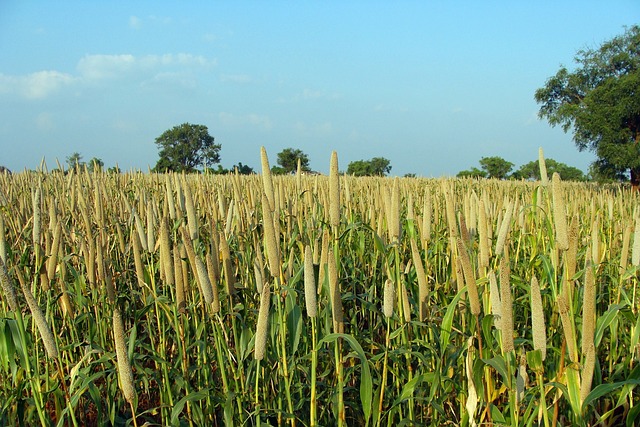MILLETS

Millets, often overlooked in the modern diet, are making a resurgence as consumers seek healthier, more sustainable food options. These tiny but mighty grains have been cultivated for millennia, providing sustenance to countless civilizations. Packed with nutrients and offering a range of health benefits, millets are poised to become a staple in kitchens worldwide.
Millets: A Nutritional Powerhouse
Millets are a nutritional powerhouse, boasting an impressive array of vitamins, minerals, and antioxidants. Compared to many other grains, they are:
- High in fiber: Promotes digestive health, helps regulate blood sugar levels, and contributes to satiety.
- Rich in protein: Essential for building and repairing tissues.
- Excellent source of minerals: Including iron, magnesium, and phosphorus, vital for various bodily functions.
- Low in gluten: Suitable for individuals with gluten sensitivities or celiac disease.
- Rich in antioxidants: Help protect cells from damage caused by free radicals.
Types of Millets
There are numerous varieties of millets, each with its unique characteristics and culinary applications. Some of the most common types include:
- Little millet : scientifically known as panicum sumatrense, is a nutritious grain that belongs to the millet family.
- Kodo millet: scientifically known as paspalum scrobiculatum, commonly called kodo millet or koda millet.
- Pearl millet: Known for its high protein content and versatility.
- Finger millet: Rich in calcium and iron, often used in traditional Indian cuisine.
- Foxtail millet: Small and delicate, with a slightly nutty flavor.
- Sorghum: A versatile grain that can be used in various dishes, from porridge to bread.
- Barnyard millet: Known for its high fiber content and earthy flavor.
- Proso millet: Often used as birdseed, but also suitable for human consumption.
Health Benefits of Millets
Consuming millets offers a wide range of health benefits:
- Improved digestion: The high fiber content promotes regular bowel movements and prevents constipation.
- Weight management: Millets can help you feel fuller for longer, reducing overall calorie intake.
- Reduced risk of chronic diseases: The antioxidants in millets help protect against heart disease, diabetes, and cancer.
- Stronger bones: Rich in calcium and other essential minerals for bone health.
- Better blood sugar control: The low glycemic index of millets helps regulate blood sugar levels.
- Gluten-free option: Suitable for individuals with gluten sensitivities or celiac disease.
Millets and Sustainability
Millets are a sustainable crop, requiring less water and fewer chemical inputs compared to other grains. Their cultivation can help conserve natural resources and promote biodiversity. By choosing millets, you are making a conscious decision to support sustainable agriculture.
Millets in Global Cuisine
Millets have a rich history in various cuisines around the world. Here's a glimpse into how different cultures incorporate these ancient grains:
- India: Millets are a staple food, used in dishes like ragi mudde, jowar roti, and bajra khichdi.
- Africa: Millet-based porridges and breads are common in many African countries.
- Asia: Millets are used in traditional Chinese, Korean, and Japanese dishes.
- Western cuisine: Millets are gaining popularity as a gluten-free and healthy alternative to traditional grains.
Incorporating Millets into Your Diet
Millets can be easily incorporated into your diet in various ways:
- Millet porridge: A hearty and nutritious breakfast option.
- Millet flour: Use as a substitute for wheat flour in baking.
- Millet pilaf: A flavorful and versatile side dish.
- Millet salads: A refreshing and healthy meal option.
- Millet-based snacks: Enjoy crunchy and nutritious snacks like millet chips or crackers.
Millets: The Future of Food
As the world becomes increasingly aware of the importance of sustainable and healthy eating, millets are poised for a major comeback. Their nutritional profile, versatility, and environmental benefits make them a compelling choice for consumers and farmers alike. By incorporating millets into our diets, we can contribute to a healthier planet and a healthier population.



